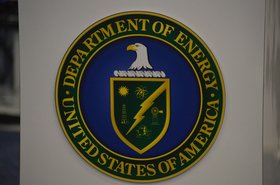At least ten American states provide more than $100 million per year in tax subsidies to data center projects, according to a report published by policy firm Good Jobs First.
The report focuses on subsidy programs specifically created for the data center industry. This typically includes sales and/or use tax derived from “[a company’s] largest start-up and maintenance expenses,” and are “uncapped" nationally, meaning there is no limit on “how much revenue can be foregone each year.”
The value of electricity subsidies, property tax abatements, and dedicated infrastructure is also intentionally omitted from the report’s calculation of foregone revenue.
These ten states, ordered by total cost of subsidies per year, are Texas, Virginia, Illinois, Georgia, Iowa, Nevada, Ohio, Minnesota, Washington State, and Tennessee.
Texas will reportedly offer more than $1bn in subsidies in 2025. The state’s land availability, energy supply, and infrastructure have made it a magnet for data center development, which is reflected in the state’s surging energy demand and its various planned developments. This includes Crusoe’s 200MW+ Abilene data center campus, which is currently under construction, QTS’s planned data center campus in Dallas, and Microsoft's latest data center development in San Antonio.
Virginia, home to the world’s most concentrated data center market in Northern Virginia, comes second, offering around $730m in subsidies in 2024. DCD has covered the challenges faced by the North Virginian power grid in keeping up with continuous demand. On Thursday, Amazon acquired land in Loudoun County for a potential data center development.
Good Jobs First also emphasizes that the 20 states that report the value of foregone revenue do so with varying consistency, quality, and accessibility. Only three states - Georgia, Tennessee, and Washington - break down results into state and local tax subsidies.
The ranking is based on “most recently available data,” meaning that each state’s reported ‘cost’ depends on available financial data. The statistic associated with Virginia, for instance, only includes “state sales tax exemptions from [Annual Comprehensive Financial Reports],” omitting local and regional data.
The report refrains from asserting whether more American states provide subsidies of the same value, given its claim that 12 out of the 32 states with subsidy programs for data centers do not disclose the value of foregone revenue.
This report attributes this to state agencies not having “access to data to determine the losses, [being] prevented by state tax privacy laws from disclosing the data, or [not being] obligated to publish any statistical reports on such costs.”
Examples of such states include Indiana, which has projected significant growth in peak load capacity as a result of attention from large players like Amazon, Microsoft, Google, and Meta, and Utah, which experienced the fastest acceleration in construction of new projects according to JLL’s 2024 report.
The report also claims that overwhelming demand makes it difficult for states to estimate the value of future subsidies, making it difficult to place caps, if at all, on “how much any state can lose in a given year.”
Good Jobs First does not draw an explicit link between its findings and state competition for data center projects, the dynamics of which can disincentivize oversight for fear of ‘losing out.’
Glenn Youngkin, Virginia Governor, recently vetoed a bipartisan data center oversight bill, saying that legislators “should not enact legislation to allow other states to pass us by nor to restrict local governments from developing data centers based on their community's specific circumstances.”
Good Jobs First describes itself as a non-profit organization that “promotes corporate and government accountability in economic development”, with a specific focus on “subsidies, corporate violations, [and] accountability measures.”
Helmed by Greg LeRoy, it produces reports, promotes legislative reform of state subsidies, offers technical assistance, and runs trackers that monitor subsidies, tax breaks, and various violations.








